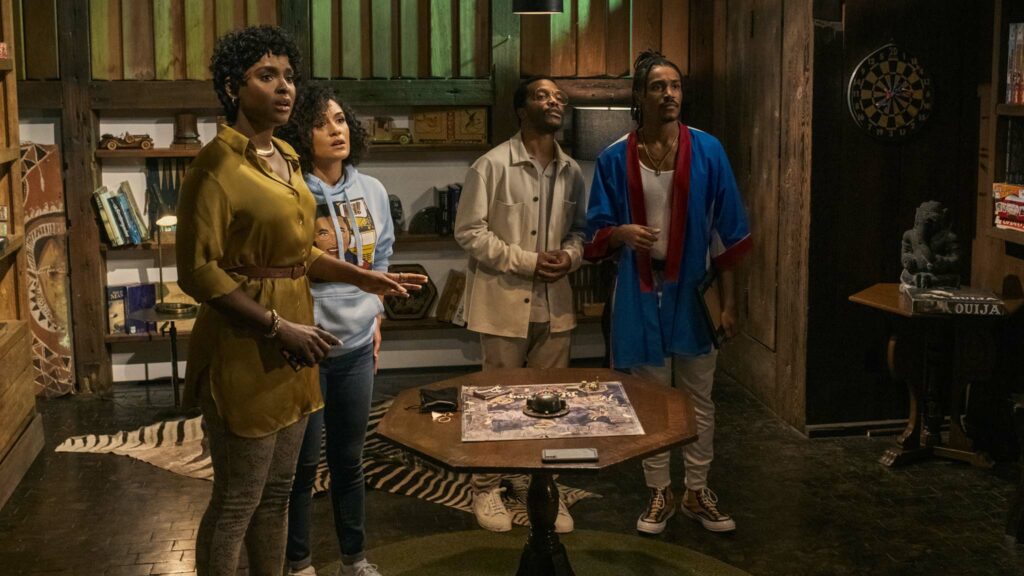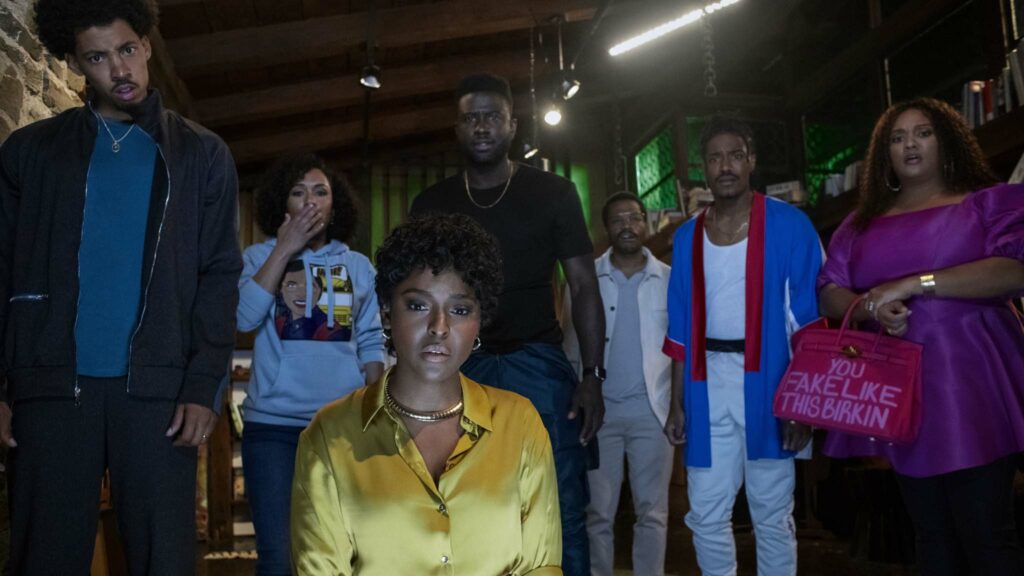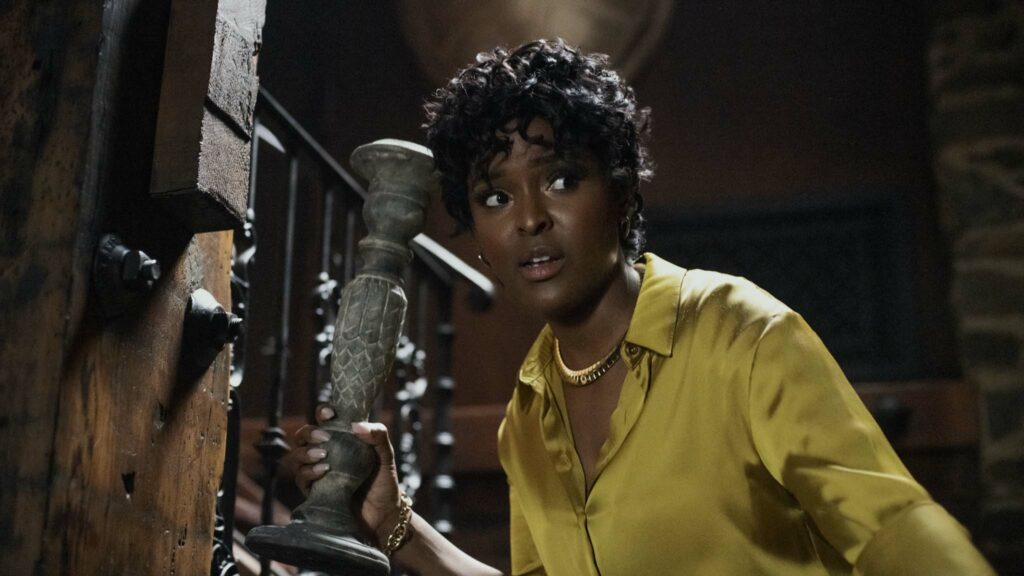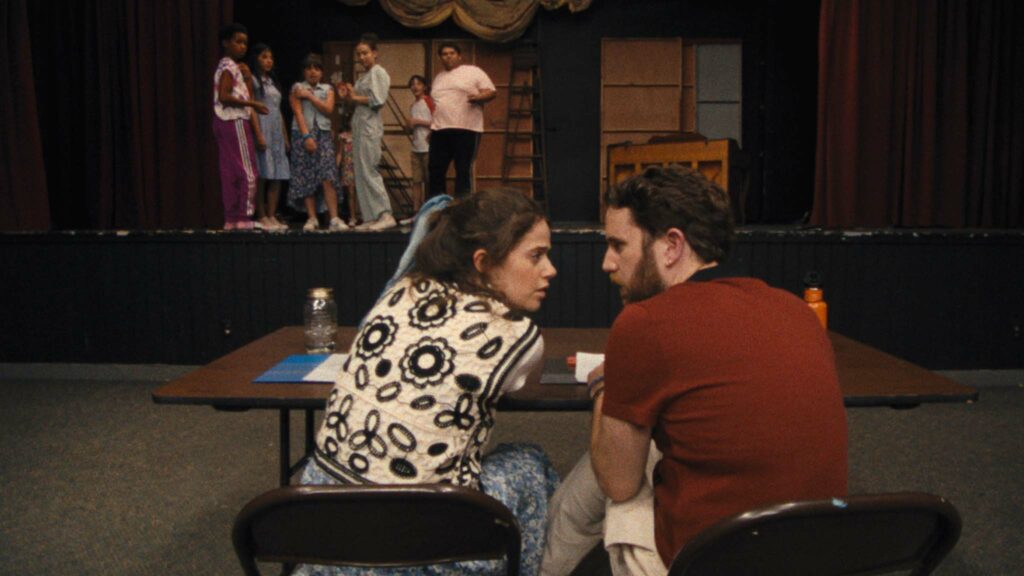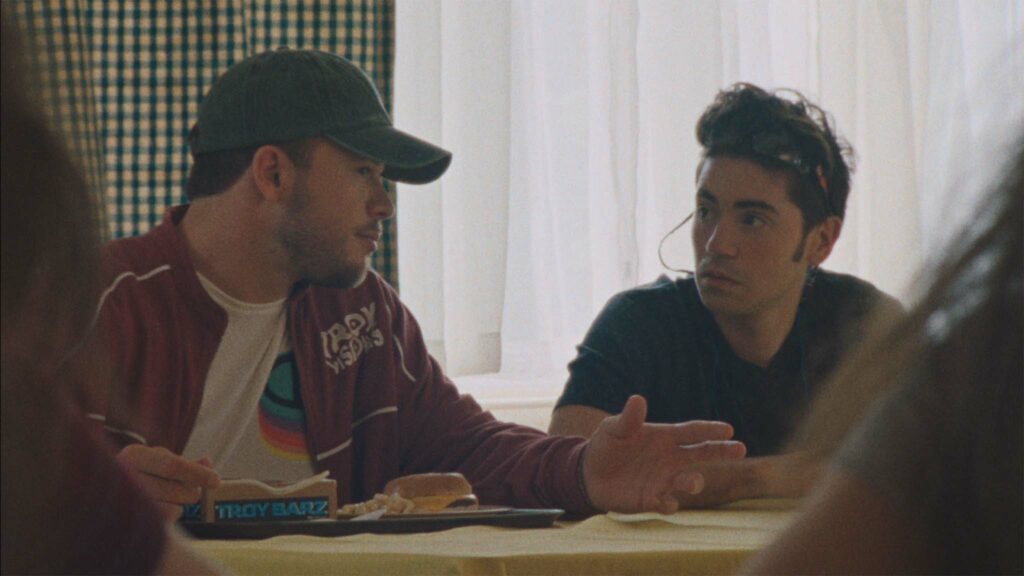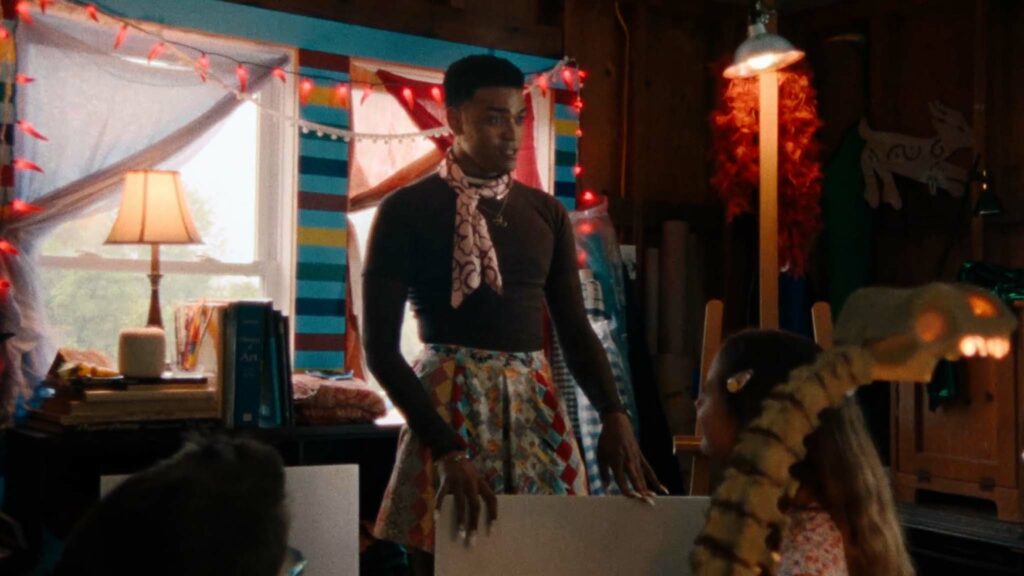Comedy
The Blackening (15)
Review: During a Scream-style prologue which establishes the satirical, blood-spattered tone of director Tim Story’s comedy horror, two terrified characters are compelled to play a blatantly racist board game. For their first challenge, the luckless couple must name a black character who survives to the end credits of any horror film. Get Out, Halloween: Resurrection, The People Under The Stairs and Scream 2 offer some potential correct answers but convention dictates that blood must be spilt and composer Dexter Story obliges with chords of impending doom.
Prefaced by a pithy title card – “This film is based on true events… that never happened” – The Blackening enthusiastically pokes fun at racial stereotypes and horror film tropes, which stipulate black characters should always fall victim to the bladed weapons of a masked killer. Screenwriters Tracy Oliver and Dewayne Perkins rifle merrily through their Rolodex of social and pop culture references including the long-running sitcoms The Fresh Prince Of Bel-Air and Friends, Beyonce and 1995 buddy comedy Friday. On-screen scares are mild and plot-focussed and will not result in any sleepless nights but rapid-fire banter between old school friends in peril is more successful and generates a steady stream of laughs.
To mark Juneteenth, the national holiday commemorating the end of slavery in the United States, hostess with the mostest Morgan (Yvonne Orji) and her boyfriend Shawn (Jay Pharoah) invite a group of old school chums to a weekend of board games, reminiscence and alcohol-soaked revelry in a cabin in the woods. Lisa (Antoinette Robertson), Allison (Grace Byers) and sassy gay confidant Dewayne (Perkins) arrive first, excited by the prospect of “some reckless, unadulterated fun”, and are met by King (Melvin Gregg), who has brought Lisa’s cheating ex-boyfriend Nnamdi (Sinqua Walls). No nonsense Shanika (X Mayo) follows a few hours later, accompanied by socially awkward misfit Clifton (Jermaine Fowler).
A power cut to the cabin sparks the search for a fuse box and the friends stumble upon a games room where a well-worn copy of The Blackening sits invitingly on a table. A menacing voice commands the group to collectively answer trivia questions about black culture. Each incorrect answer is punishable by death courtesy of a masked fiend wielding a crossbow. In time, the friends are ordered to sacrifice one of the group, based on who they consider to be “the blackest”, and simmering tensions in the cabin reach boiling point.
The Blackening draws more blood with words than kitchen knives or tapered crossbow bolts. Violence is occasionally bloody but grisly interludes, including a protected scene of bludgeoning, are dimly lit by design or staged out of shot. The ensemble cast spars energetically, trading salty insults under the influence of class A drugs. We know what they did this summer.
Find The Blackening in the cinemas
Comedy
Theater Camp (12A)
Review: Expanded from a short film co-written by Noah Galvin, Molly Gordon, Nick Lieberman and Ben Platt, Theater Camp is an effervescent celebration of people who live and breathe life on stage, including the next generation of razzle dazzlers oozing creative flair from every pore. A faux documentary format allows co-directors Gordon and Lieberman to roam the hallways, performance spaces and cabins of a youth theatre camp in upstate New York, witnessing emotional meltdowns and artistic differences without any of the protagonists acknowledging the presence of cameras. When an adolescent actor claims he has no life experience to authentically portray a father, his acting teacher coolly dismisses these concerns by referencing an Oscar-winning performance in the 2014 film Still Alice: “Did Julianne Moore really have dementia?”
The script serves a generous slice of theatrical ham by affectionately lampooning thespians, acting techniques and different facets of stagecraft. There are sporadic big laughs like when one sneaky ingenue is publicly exposed for using a banned substance to help her cry (“Tear sticks are doping for actors!”) but gentle sideswipes of obvious targets are more likely to elicit appreciative smiles. Enduring real-life friendships between writers and co-stars, evidenced by an adorable opening montage of home videos, catalyses delightful on-screen chemistry.
Joan Rubinsky (Amy Sedaris), doyenne of the Adirond ACTS theatre camp for children, suffers a severe reaction to strobe lighting in a student production of a cherished stage musical and slips into a coma. It is “the first Bye Bye Birdie-related injury in the history of Passaic County”, an on-screen caption drolly informs us. Joan’s clueless yet well-intentioned vlogger son Troy (Jimmy Tatro) assumes control of camp, applying his “entrepreneurial” spirit to keep various debtors at bay. He hopes to impress a sharply tailored financial consultant (Patti Harrison) whose hedge fund associates have secured a sizeable interest in neighbouring Camp Lakeside.
Drama director Amos Klobuchar (Platt) and music director Rebecca-Diane (Gordon), who dreamily claim to “share a soul”, audition the new intake for this season’s productions alongside dance teacher Clive DeWitt (Nathan Lee Graham) and costumes master Gigi Charbonier (Owen Thiele). The creme de la creme of students are handpicked for an original musical written by Amos and Rebecca-Diane entitled Still Joan, dedicated to their comatose creative dynamo. Egos inflate to bursting, friendships fray at the seams and shy technical director Glenn Wintrop (Galvin) demonstrates hidden talents that demand he moves from wielding the spotlight to standing proudly in it.
Theater Camp preaches enthusiastically to fans of the stage with plentiful in-jokes but does not exclude mainstream audiences from enjoying a ham-fisted battle to resuscitate Adirond ACTS. A climactic performance of Still Joan is surprisingly moving and almost delivers on Troy’s promise to “blow the roof off” his mother’s ICU. Life is a cabaret, old and young chums.
Find Theater Camp in the cinemas


